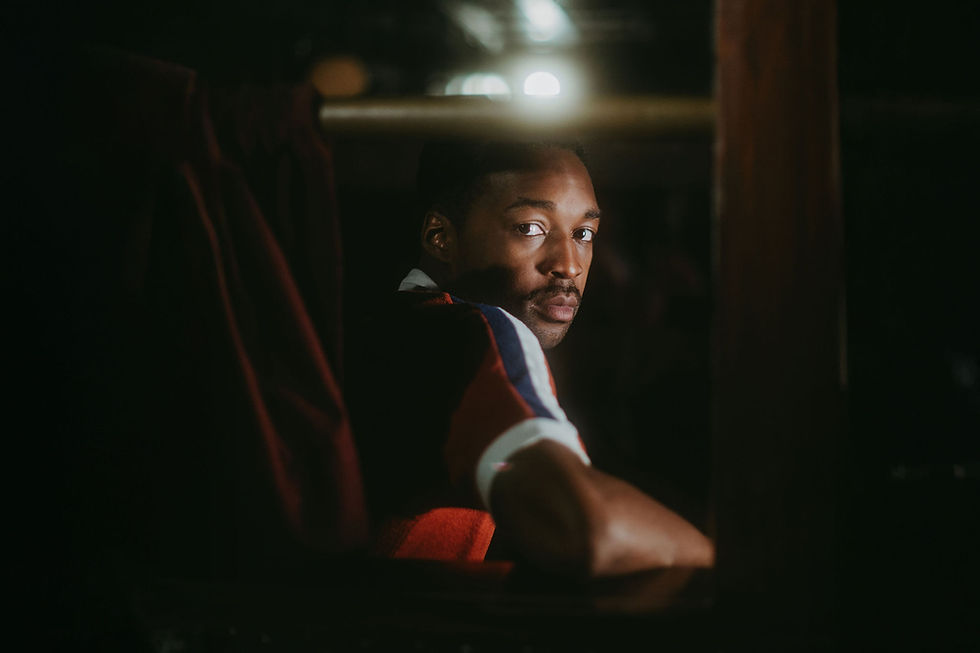RYAN ADAMS - PRISONER: REVIEW
- Feb 16, 2017
- 4 min read
Updated: Oct 14, 2025

RYAN ADAMS
Prisoner (EMI)
THE KEY PHRASES already being used about Ryan Adams’ 15th, or 16th – or possibly 25th – album are concise songs, concise album; classic rock via Petty and Springsteen; honest lyrics; and, maybe, so this is what it’s like to get divorced, smoke a lot of weed, free your mind of the blockages and write from a point between heart and gut.
There’s truth in all of those, to varying degrees. Twelve songs in just under 43 minutes is old-school timing, certainly, and there’s a clarity in the structures of those 12 that suggests an early understanding of where each fits historically as much as where each fits on the album.
The acoustic underpinning of Broken Anyway, all Laurel Canyon tousled haired singer/songwriter, is intercut with vibrating electric that pitches the song back down the hill to the smoggy city. Then arrives a solo that is languid and yet prickly in a manner Lindsey Buckingham would have appreciated and which pushes the song out on the road. Tick and tick.
Do You Still Love Me? borrows a church organ and puts it at the centre of proceedings, despite the presence of beefed-up guitars and a rhythm that is stiff-legged staccato. The husky voice puts need underneath urgency and when it gives way to the inevitable guitar solo – a song like this will always have a guitar solo – it is both brief and unashamed of its proper-middle-American-band-at-work. Tick and tick.
However, it would be wise not to be seduced into putting on your Born In The USA t-shirt by Do You Still Love Me?, which opens the album. It is the most classic rock moment on the album, a bit of an outlier really, with only the New Jersey-ish, low-rumbling rock of Outbound Train coming near it.
In truth, the musical terrain of Prisoner fits most often in familiar territory of Smiths-meets-country-rock. Not that there’s anything wrong with that, mostly, if you’re an Adams fan.
Messrs Marr and Morrissey are evident in the simple guitar figure intro, dragging drum and not-quite-maudlin melody of the title track, the harmonica prelude for some shimmering chords in Doomsday, and the low-sky, mid-temper atmosphere of We Disappear. To Be Without You, on the other hand, is the post-Gene Clark/Neil Young troubadour, bruised but more bent than broken and always intimate, over flat-pack drums and acoustic guitar, while Breakdown is the bleaker, country roots-showing extension of that approach.
The duo of Outbound Train and Tightrope could be considered bridges between the indie pop and the classic rock sides of this album, especially when Tightrope opens with a cracked man at guitar looking for someone to “make me smile” (though you have your doubts it will happen again) and then breaks down to a saxophone-and-piano section that feels made for E Streeters Clarence Clemons and Roy Bittan.
Best of all there’s Shiver And Shake, which feels like the lust-expired version of I’m On Fire, all charged air and low level organ. “I’ve been waiting here like a dog at the door” certainly makes it clear the desire that might once have come on like a freight train running through the middle of his head, has crashed. And yet he can’t shake it off, can’t stop thinking she’s somewhere “laughing like you never knew I was alive”.
Around it in songs which never really find solace but don’t stop looking for it, Adams veers between pain and resignation; between anger controlled by maturity but not expunged by it, and a wish to know more as a kind of subjugation.
Shiver And Shake is the denouement of a great love that now is both muscle memory and open wound, sung, or maybe released like an expelled breath. The emotions are palpable, the layer of skin between him and the listener paper thin. As such it’s something of a centrepiece for the album. It is also possibly the only great song on Prisoner, and that’s a disappointment.
Which isn’t to say the album lacks for good and very good songs. Prisoner and Outbound Train are mighty fine, expanding as you live with them and becoming the kind of substantial album track Adams does so well; and Doomsday and To Be Without You have a strong heart and a big emotional kick, respectively. The physical energy of the need in Do You Still Love Me? makes it a strong opening and the positive energy in the acceptance of We Disappear, a song which could have come from the Cold Roses sessions 12 years ago, ends the album on more nuanced note.
But these tracks are also dragged down by the somewhat generic Adams of Haunted House and Anything I Say To You Now. Both perfectly decent songs, they feel blurred compared with the rest of the album, as if their inclusion is as much about feeling right as being the best available from the supposed stock of 80 songs he had available for this album.
A solid, satisfying album from anyone is a pretty good result on most measures. A solid, satisfying album from Ryan Adams though is merely reasonable. It’s unfair, but that’s the problem when you’re someone who has written so may brilliant songs: you set the bar higher than anyone else would.




Comments